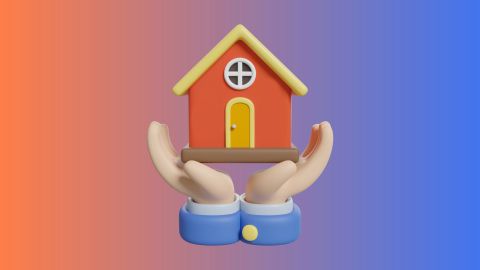Property rights are fundamental to the legal framework of ownership, providing individuals with the right to control, use, and transfer their assets. Whether it's residential, commercial, or industrial property, understanding property rights is essential for both homeowners and investors.
Additionally, leveraging property ownership can unlock financial opportunities, such as obtaining loans against property. Bajaj Finserv Loan Against Property offers a convenient solution for individuals seeking to maximise the value of their property assets.
Understanding property rights
Property rights encompass a spectrum of legal principles that define the ownership and control of assets. These rights typically include the right to possess, use, transfer, and exclude others from the property. In essence, property rights provide individuals with a bundle of rights that enable them to exercise control over their assets within the boundaries of the law.
Types of property rights
There are a variety of types of property rights related to real estate, including:
- Ownership rights: The right to own property is the most basic right of a property owner. This includes the right to sell, lease, or use the property as the owner sees fit.
- Possession rights: Possession rights are related to the right of the owner to use, occupy, or possess the property. This right is generally granted to the owner or authorised tenant of the property.
- Use rights: Use rights refer to the right to use a property in a particular way. For example, a homeowner may have the right to use their property for residential purposes only.
- Easements: Easements are a type of property right that allows a person or entity to use someone else's property for a particular purpose. For example, a utility company may have an easement to use a homeowner's property to run power lines.
Legal framework for property rights
Property rights are governed by a variety of state laws. These include laws related to contracts, property sales, landlord and tenant relations, and zoning regulations. Additionally, state, and local governments may have their own laws related to property rights.
Importance of property rights
Property rights are important because they establish a clear legal framework for the use and ownership of property. This framework allows property owners and tenants to know exactly what their rights and obligations are under the law. Additionally, property rights help to protect the investment that a property owner has made in their property or even get a loan against property when in need of financial assistance.
Common issues related to property rights
There are several common issues related to property rights that property owners and tenants should be aware of. These include:
- Disputes with neighbours over property boundaries.
- Disputes with landlords over lease agreements or rental payments.
- Homeowners association disputes.
- Zoning disputes.
Protecting your property rights
To safeguard your property rights, understanding the legal framework surrounding real estate is essential. Familiarise yourself with local laws and regulations governing property ownership. Maintain thorough documentation, including lease agreements and property deeds, to substantiate your ownership claims. In case of disputes, consult a qualified attorney for expert guidance. Leveraging your property rights can also offer financial flexibility, including accessing funds such as Bajaj Finserv Loan Against Property.
Manage your needs with a Bajaj Finserv Loan Against Property
Unlock the potential of your property and fulfil your diverse financial needs with a Bajaj Finserv Loan Against Property. Whether you are looking to expand your business, renovate your home, fund education expenses, or consolidate debt, this versatile financial solution provides the funds you need with convenience and flexibility. Applying for a Bajaj Finserv Loan Against Property offers numerous benefits:
- Substantial loan amounts: Benefit from large loan amounts of up to Rs. 10.50 crore*, allowing you to address your financial requirements with precision.
- Long repayment tenures: We offer convenient repayment tenures of up to 15 years*.
- Hassle-free application process: Applying for our loan against property is simple and convenient. You can apply online through a hassle-free application process, saving you time and effort. With easy eligibility criteria and minimal documentation, you can initiate the application process from the comfort of your home or office.
Bajaj Finserv Loan Against Property is a smart financial solution that allows you to manage your needs effectively. With competitive interest rates, flexible repayment options, and quick processing, you can unlock the value of your property and address your financial requirements with ease. Get loan of up to Rs. 10.50 Crore* against your property within 72 hours* of the approval.
Apply for loan against property today!
Related Property Types in India
Related property types in India include residential, commercial, industrial, and agricultural properties. Each category serves specific purposes, governed by distinct legal, zoning, and taxation regulations.




